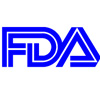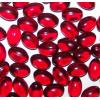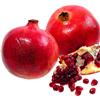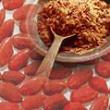 The U.S. Food and Drug Administration announced its preliminary determination that partially hydrogenated oils — the primary dietary source of artificial trans fat in processed foods — are not “generally recognized as safe” for use in food.
The U.S. Food and Drug Administration announced its preliminary determination that partially hydrogenated oils — the primary dietary source of artificial trans fat in processed foods — are not “generally recognized as safe” for use in food.
It wasn’t always so.
Continue reading The end of trans fats →
 Hibiscus sabdariffa L. (roselle, red sorrel; Arabic: karkade) grows as large shrubs or small trees that produce huge, colorful, trumpet-shaped flowers promoted to reduce cholesterol levels.
Hibiscus sabdariffa L. (roselle, red sorrel; Arabic: karkade) grows as large shrubs or small trees that produce huge, colorful, trumpet-shaped flowers promoted to reduce cholesterol levels.
Researchers at the University of Malaya, in Kuala Lumpur, reviewed the data on its effectiveness and safety. Continue reading Lack of effect of Hibiscus sabdariffa L. on cholesterol →
 Statins are prescribed to treat high cholesterol and cardiovascular disease. Increased fitness is recommended as an essential part of promoting health.
Statins are prescribed to treat high cholesterol and cardiovascular disease. Increased fitness is recommended as an essential part of promoting health.
Now, researchers at Georgetown University School of Medicine, in Washington DC, report the combined effects of fitness and statin treatment on mortality. Continue reading Advantages of adding exercise to statin treatment →
Continue reading Advantages of adding exercise to statin treatment →
 Dr. Claude Bouchard and colleagues from around the US and Finland tell us that people differ in their response to regular exercise.
Dr. Claude Bouchard and colleagues from around the US and Finland tell us that people differ in their response to regular exercise.
Sometimes these differences contribute to adverse changes in cardiovascular and diabetes risk factors, according to this study. Continue reading Adverse response to exercise →
 Researchers at the Centers for Disease Control and Prevention examined the relationship between 4 low-risk behaviors and mortality among a group of people in the United States. Continue reading Effect of low-risk lifestyle behaviors on the risk of dying →
Researchers at the Centers for Disease Control and Prevention examined the relationship between 4 low-risk behaviors and mortality among a group of people in the United States. Continue reading Effect of low-risk lifestyle behaviors on the risk of dying →
 In this Cochrane review, researchers at the Child and Adolescent Care Centre, in Chennai, India, assessed the effects. Continue reading Ayurvedic treatments for diabetes mellitus →
In this Cochrane review, researchers at the Child and Adolescent Care Centre, in Chennai, India, assessed the effects. Continue reading Ayurvedic treatments for diabetes mellitus →
 Dietary advice is the basis of treatment of diabetes, but there’s uncertainty about the effects of polyunsaturated fatty acids.
Dietary advice is the basis of treatment of diabetes, but there’s uncertainty about the effects of polyunsaturated fatty acids.
Researchers at Uppsala University, in Sweden, compared the effects of diets rich in omega-3 or omega-6 fatty acids on glucose and lipoprotein metabolism in these patients. Continue reading Benefits in type 2 diabetes of eating fatty fish →
 Acute coronary syndrome refers to any condition brought on by sudden, reduced blood flow to the heart causing chest pain during a heart attack or chest pain at rest or doing light physical activity (unstable angina).
Acute coronary syndrome refers to any condition brought on by sudden, reduced blood flow to the heart causing chest pain during a heart attack or chest pain at rest or doing light physical activity (unstable angina).
Researchers at Shanghai Jiaotong University, School of Medicine, in China, tested berberine’s effects on ACS patients following percutaneous coronary intervention (PCI) (aka angioplasty or stent placement). Continue reading Berberine to treat acute coronary syndrome →
 Researchers at the University of Copenhagen, in Frederiksberg, Denmark, compared the effects of a diet rich in palm olein (the liquid portion of a fat) to fractionated palm oil, olive oil, and lard. Continue reading Effects of palm oil on cholesterol →
Researchers at the University of Copenhagen, in Frederiksberg, Denmark, compared the effects of a diet rich in palm olein (the liquid portion of a fat) to fractionated palm oil, olive oil, and lard. Continue reading Effects of palm oil on cholesterol →
 Researchers at Akershus University College, in Lillestrom, Norway, studied the effects of krill oil and fish oil on lipid blood levels and oxidative stress and inflammation in healthy people. Continue reading Krill oil vs fish oil →
Researchers at Akershus University College, in Lillestrom, Norway, studied the effects of krill oil and fish oil on lipid blood levels and oxidative stress and inflammation in healthy people. Continue reading Krill oil vs fish oil →
 During the American Society of Nephrology Annual Meeting, researchers at Western Galilee Hospital in Nahariya, Israel, reported that patients on hemodialysis who drank moderate amounts of pomegranate juice saw improvement in lipids, blood pressure, and the number of antihypertensive medications required. Continue reading Pomegranate juice improves cardiovascular risk factors →
During the American Society of Nephrology Annual Meeting, researchers at Western Galilee Hospital in Nahariya, Israel, reported that patients on hemodialysis who drank moderate amounts of pomegranate juice saw improvement in lipids, blood pressure, and the number of antihypertensive medications required. Continue reading Pomegranate juice improves cardiovascular risk factors →
 Researchers at Friedrich Schiller University, in Jena, Germany, studied the influence of a probiotic supplement alone and combined with a calcium supplement on lowering blood cholesterol levels. Continue reading Calcium, probiotics, and cholesterol metabolism →
Researchers at Friedrich Schiller University, in Jena, Germany, studied the influence of a probiotic supplement alone and combined with a calcium supplement on lowering blood cholesterol levels. Continue reading Calcium, probiotics, and cholesterol metabolism →
 Researchers at The Ohio State University, in Columbus, recorded the effects of conjugated linoleic acid (an unsaturated omega-6 fatty acid) and safflower oils on blood sugar levels, blood lipids, and inflammation. Continue reading Effects of safflower oil and linoleic acid in diabetes →
Researchers at The Ohio State University, in Columbus, recorded the effects of conjugated linoleic acid (an unsaturated omega-6 fatty acid) and safflower oils on blood sugar levels, blood lipids, and inflammation. Continue reading Effects of safflower oil and linoleic acid in diabetes →
 Researchers at Tufts University School of Medicine and Tufts Medical Center, in Boston, are the first to evaluate changes in the cholesterol-lowering effects of atorvastatin (Lipitor) in patients with high cholesterol taking stable doses atorvastatin while drinking typical quantities of grapefruit juice. Continue reading Final word on the statin-grapefruit juice interaction? →
Researchers at Tufts University School of Medicine and Tufts Medical Center, in Boston, are the first to evaluate changes in the cholesterol-lowering effects of atorvastatin (Lipitor) in patients with high cholesterol taking stable doses atorvastatin while drinking typical quantities of grapefruit juice. Continue reading Final word on the statin-grapefruit juice interaction? →
 Here’s a look at the use of dietary supplements by physicians in 3 specialties in the US: cardiology, dermatology, and orthopedics. Continue reading Use of dietary supplements by medical specialists →
Here’s a look at the use of dietary supplements by physicians in 3 specialties in the US: cardiology, dermatology, and orthopedics. Continue reading Use of dietary supplements by medical specialists →
 Red yeast rice is an alternative therapy to treat high cholesterol levels. It contains monacolins that may inhibit HMG-CoA reductase — the enzyme inhibited by statins.
Red yeast rice is an alternative therapy to treat high cholesterol levels. It contains monacolins that may inhibit HMG-CoA reductase — the enzyme inhibited by statins.
Researchers at Chestnut Hill Hospital, in Philadelphia, Pennsylvania, report marked variability of monacolin and citrinin content in 12 readily available red yeast rice products. Continue reading Marked variability in red yeast rice products →
 Dietary fat is associated with obesity, type 2 diabetes and cardiovascular disease.
Dietary fat is associated with obesity, type 2 diabetes and cardiovascular disease.
Researchers in Ireland measured the effect of 3 grams cinnamon (Cinnamomum zeylanicum) on gastric emptying, postprandial lipid and blood sugar responses, and other metabolic effects. Continue reading Looking for the metabolic effects of cinnamon →
 Epidemiological studies have associated eating nut with reduced risk for coronary heart disease (narrowing of the small blood vessels that supply blood and oxygen to the heart).
Epidemiological studies have associated eating nut with reduced risk for coronary heart disease (narrowing of the small blood vessels that supply blood and oxygen to the heart).
Researchers in the US and Spain reviewed the evidence. Continue reading Effects of eating nuts on cholesterol →
Complementary and Alternative Medicine: Fair, Balanced, and to the Point
 The U.S. Food and Drug Administration announced its preliminary determination that partially hydrogenated oils — the primary dietary source of artificial trans fat in processed foods — are not “generally recognized as safe” for use in food.
The U.S. Food and Drug Administration announced its preliminary determination that partially hydrogenated oils — the primary dietary source of artificial trans fat in processed foods — are not “generally recognized as safe” for use in food.












